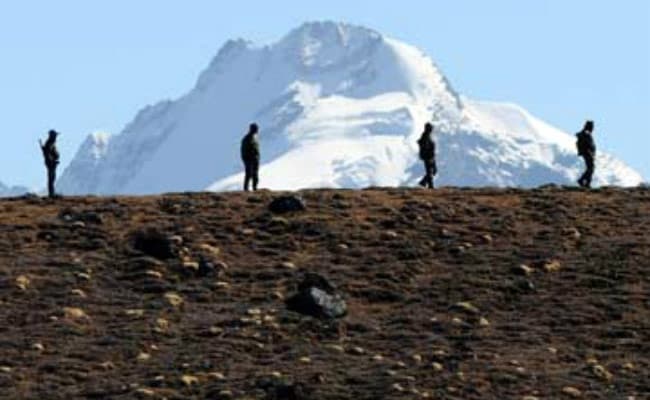
Senior army officers from China and India in Ladakh are today holding a flag meeting, used to discuss border spats and control, after yesterday's clashes in which soldiers from the two countries threw stones at each other, resulting in minor injuries Indian border guards stopped Chinese troops from entering Indian territory along a lake. Senior army officials have not denied the encounter which raises tension between Beijing and Delhi in the Western Himalayas at a time when the two countries are locked deep in confrontation at Sikkim in the Eastern Himalayas.
Here are the 10 latest developments in this big story:
The clashes in Ladakh are the first of their kind in years. India and China frequently accuse each other of intrusions into each other's territories, but violence of any sort is rare. A spokesperson for the Chinese government said it is not aware of yesterday's incursion. Defence Minister Arun Jaitley said, "This is not a subject on which the government makes a comment on" according to news agency ANI.
Chinese troops tried to enter Indian terrain yesterday along the banks of the Pangong Lake, two thirds of which is controlled by China, and is a popular tourist attraction on the Indian side of the border.
The stand-off lasted two hours; no arms were used. The situation was brought under control after a drill which sees both sides holding up banners proclaiming their rights over the disputed area before stepping back to their respective positions.
Soldiers of the Indo-Tibetan Border Police which patrols the border along with the army carried a flag that said in Chinese, "This area belongs to us please go back" but the Chinese soldiers refused, said sources.
About 15 Chinese soldiers had crossed into Indian territory. Despite repeated warnings, they refused to retreat, resulting in stones being thrown by both sides.
The two armies are already engaged in a standoff in the Doklam plateau across the border in Sikkim. China has repeatedly asked India to unilaterally withdraw from the Doklam area, or else face the prospect of an escalation. Chinese state media have warned India of a fate worse than its crushing defeat during the brief border war in 1962.
The trouble started in June when India sent troops to stop China building a road in the Doklam area, which is remote, uninhabited territory claimed by both China and India's ally Bhutan. India says it had warned that the road would be seen as a security violation because of its strategic location near the trijunction of the borders of India, China and Bhutan.
India has offered that both sides withdraw troops to engage in dialogue, but China has refused that option, though it cedes that diplomatic channels remain open.
To guard its side of Lake Pangong, Indian forces are armed with high-speed interceptor boats, bought from the US, which can accommodate nearly 15 soldiers and are equipped with radars, infra-red and GPS systems. These boats are used to conduct reconnaissance and area domination patrols.
The Chinese army was intercepted by Indian patrols repeatedly in 2013, when Beijing sent its soldiers into Indian turf in a freezing plateau in Ladakh, leading to a three-week-long confrontation seen as the worst border violation in years near Daulat Beg Oldi, close to an air strip India uses to support troops on the Siachen glacier.

